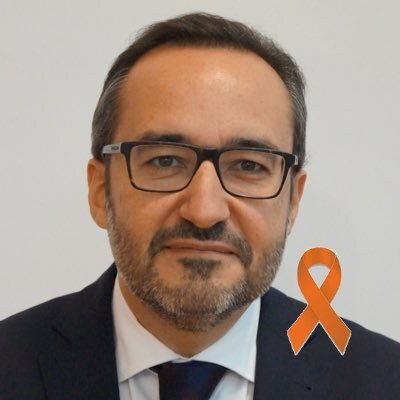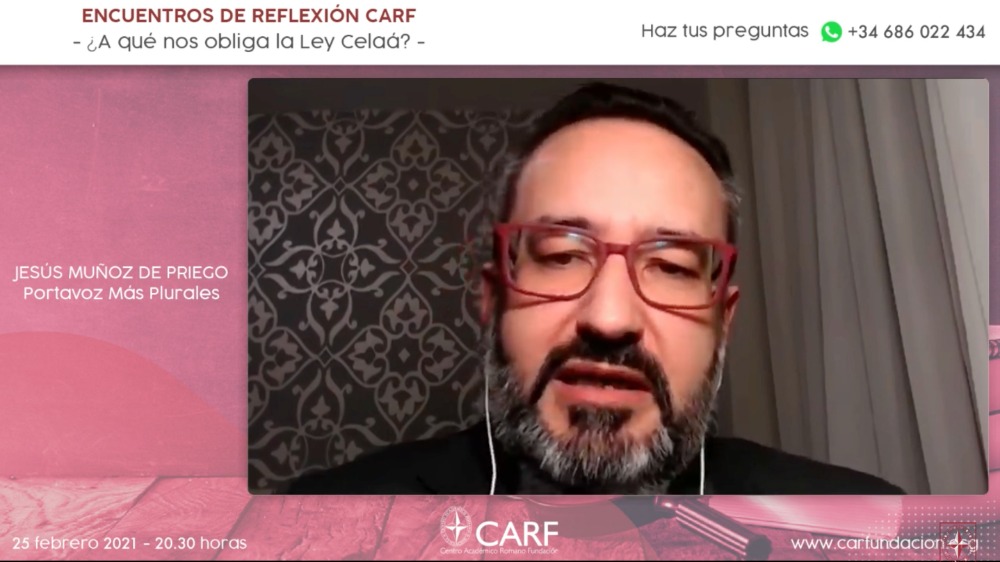
For Muñoz de Priego, also spokesman and coordinator of the initiative for freedom of education "enLibertad", it is "the worst law of democracy" approved in the midst of a situation of health and economic crisis due to the pandemic. "An interventionist law that tends to absolute control".
"If there had not been a social movement driven by Más Plurales, this law would have passed with neither pain nor glory due to the pandemic, that is why it was not the most appropriate time to pass it," commented the lawyer.
The expert explained, this Thursday, during the second CARF reflection meeting, that the Government has rushed to approve this law because of its interest in fulfilling an electoral promise and because, in the opinion of the PSOE-Unidas Podemos Executive, the previous education law lacked consensus on the part of the educational community.
"But it turns out that the Celaá law is the one that has had the least support, both in the Congress of Deputies (it was approved with a very fair number of votes) and in the educational entities," said Jesús Muñoz.
This is the first education law of democracy that has been passed without:
Therefore, according to Muñoz de Priego this law is a real attack on the freedom of education that makes public schools the only possible option..
For the lawyer, the LOMLOE completely changes the rules of the game and places the Administration in an interventionist position. In addition, the Celaá law invents a new right which is "the right to public education, instead of the right to education, which is the one included in the Constitution".

Jesús Muñoz de Priego Alvear, lawyer, legal advisor, author of numerous articles, books and papers and spokesman for the Plataforma Más Plurales, guest at this CARF reflection meeting.
Some of the measures introduced by the LOMLOE that infringe on the freedom of education and violate the constitutional right of parents to choose the education they want for their children according to their convictions are the following:
The spokesman for Más Plurales recalled that in the communities governed alone by the Socialist party, as is the case of Andalusia, there have been real attacks on the freedom of education, creating public schools in areas where there was no social demand, thus cornering subsidized education.
"It is worth remembering that the Supreme Court has made it clear that subsidized education is not subsidiary to public schools," said the speaker at the CARF reflection meeting.
Moreover, he has made it clear that among the objectives of the Catholic school is its evangelizing mission and that, therefore, it also has the right to receive state aid for offering something different from the public school. "This allows the real exercise of the freedom of teaching," he points out.

You can see, in this video, the entire CARF Reflection Meeting on the Celaá Law with the intervention of Jesús Muñoz de Priego.
On the other hand, Muñoz de Priego has argued that this law will prevent those who have fewer resources from exercising their constitutional rights, thus generating a "social exclusion". crisis in education "Freedom of education requires that all citizens, regardless of their income, be able to choose what kind of education they want for their children. But with this law, those who do not have money, will not be able to choose."
Another of the controversial issues of this law is its insistence on guaranteeing the rights of children, which is absolutely correct, but, on the other hand, behind this insistence is the government's intention to control the rights of children over the power of parents. "This law will mean that many families will have to defend themselves against possible state interventions," says Muñoz de Priego.
Faced with this interventionist law, the Más Plurales platform, as well as other educational entities, have asked the European Court of Justice to rule in favor of freedom of education and to rule that the Spanish State, with this law, violates fundamental rights.
On the other hand, PP, Ciudadanos and Vox are already preparing appeals of unconstitutionality against this law.
The entire intervention can be seen in this video.